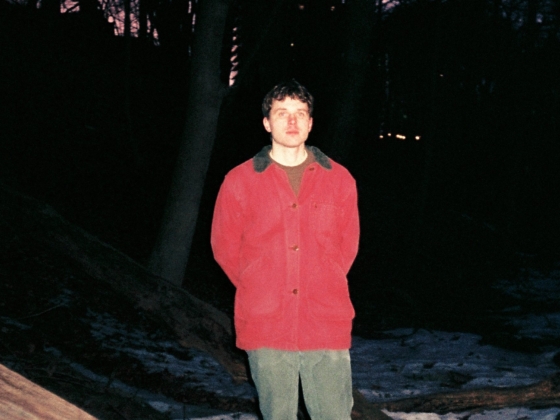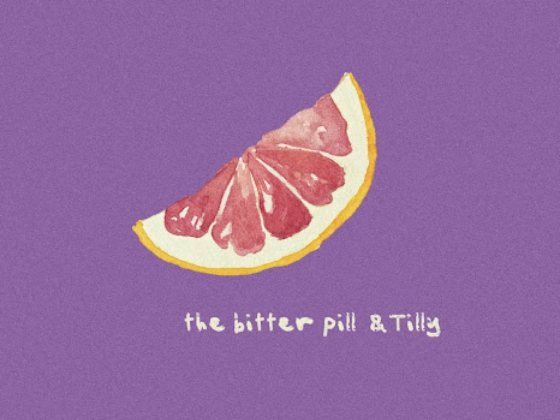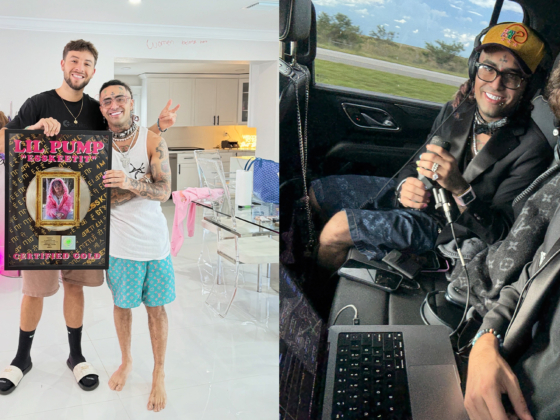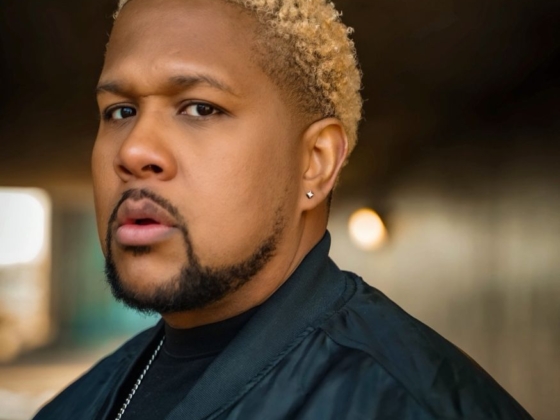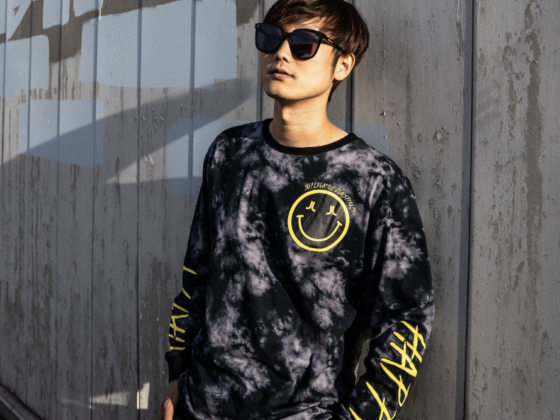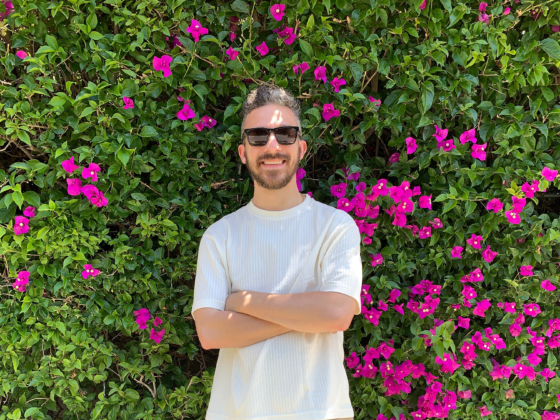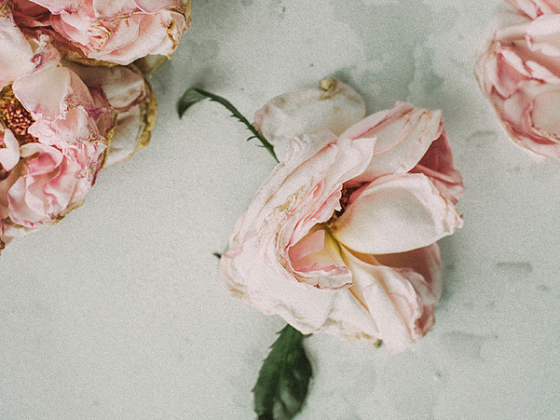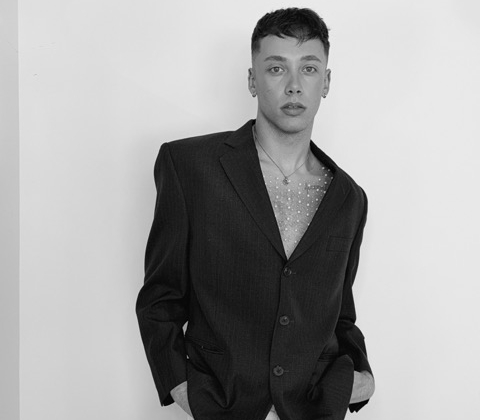It has to go nearly without argument that Kid Ink is having the best year of his career. Now, this statement may be entirely accurate or entirely inaccurate to Kid Ink himself – I can't put words in his mouth. But from an outsiders perspective who is looking in on his successes and triumphs this year, it's hard to argue the contrary. Whether you're a supporter of his music or not, he has penetrated the commercial, mainstream national music audience.
He has captivated the ears of those in middle America and corporate boardrooms alike. And who can really hate on that? Because for all of those who continuously knock or hate on this singer or that rapper (those who are in the spotlight of the moment), Kid Ink has paved a way for himself in entertainment and has undoubtedly secured himself personal wealth and financial security (if he's smart, that will be a longterm statement). Music is a business after all, isn't it?
Ink's decisions, both at the core level of things like beat selection and hook arrangement to his clothing line and other business ventures, have built a recognizable brand that's made him a staple in hip hop since late last year. We recently sat down and had the chance to chat with him in between 2 of his tour stops – he's currently in the midst of his My Own Lane Tour in North America and will soon be heading overseas to Australia and Europe. Check out the interview below.
EARMILK: Let's start off by discussing how "Show Me" was such a big record for you and how it launched your career on the national (even global) level. But even more-so, how you followed it up with a second DJ Mustard-produced single, "Main Chick." Both songs have dominated the airwaves and "Main Chick" has climbed as high as #5 on the Rhythmic Radio charts. Describe your creative process and the obvious chemistry you seem to have DJ Mustard.
[soundcloud url="https://api.soundcloud.com/tracks/108863442" params="auto_play=false&hide_related=false&show_comments=true&show_user=true&show_reposts=false&visual=true" width="100%" height="450" iframe="true" /]
[soundcloud url="https://api.soundcloud.com/tracks/135893478" params="auto_play=false&hide_related=false&show_comments=true&show_user=true&show_reposts=false&visual=true" width="100%" height="450" iframe="true" /]
Kid Ink: You know man, I think for me, I was definitely getting a bunch of beats from [DJ] Mustard at that point and had a bunch of different ZIP folders full of stuff. I was going through them and I had some dope ones that I was coming across, but they still sounded a lot like the other songs that were out already that he had produced. And I'm kind of somebody that, you know, doesn't ride the bandwagon or try to bite off of somebody else's style. So I kind of waited it out. And the best part about it is his productions grew and grew by the month and he ended up sending me this one batch that separated themselves from all his other productions and just filled that vibe I was searching for. They were better for me because of the type of artist I am who deals with more melodies. They weren't just average hip hop beats – they were dope for me, and allowed me to put in melodies and the type of song structure that I look for. They were more turn up beats.
EM: Are you the sole person selecting your beats? Or do you have a team of people around you who help in the decision-making process? If it's just you you're picking a number of winners.
KI: Picking beats and that creative process is usually just all me 100%. Like I'm in the studio or at the house just going through my laptop and going through beats and beats and putting stuff aside to work on when I get to the studio. And then from there, you know, of course when I get to the studio my A&R will have some beats and ideas that somebody sent him and I'll listen to them and check 'em out to see if I can get any ideas and flip those. But for the most part for the creative process of me just musically it's me – and then the ones that I vibe with at that time, I go in the booth and lay melodies and come up with quick ideas that come off the top of the head. And I think sometimes you know, it'll be a beat that doesn't sound as dope on Tuesday and then when I hear it on Friday it sounds even different. It sounds better. Sometimes it's that I'm in a different zone and mode but it happens like that.
EM: A side question off of that. You've had such a colt following – I remember when I first started following you a number of years back I was like, wow, I'm already late. You're fan base was already there. So I always thought you had the potential to sell & hit big. But did you ever think you would commercially chart or resonate the way that you have?
KI: I think for me, you know, it was more of a goal for me than anything. And from it being a goal, I felt like it was something that I always wanted to look forward to and have happen. But I think I kind of had the best of both worlds by building that strong core fan base first. I used to really want to have that single pop off. And I wished it was like my first or second song that I released. But I finally kind of fell back off of that and was like, man, I appreciate the core fan base and the base that I grew just from grinding it out underground and not really focusing on the radio by doing the mixtape thing and the viral thing so much that I think it just made it even better for when I did get that record and it started charting. The fans were really fighting for it. When the album came out they were ready to buy 2-3 copies instead of just buying 1 as a brand new fan. The fan base I'd already built wanted to see the movement and wanted to help me grow stronger. Once I caught the feeling of what it felt like to have a #1 single I never wanted to look back.
EM: 'My Own Lane' was such a collaborative melting pot. Where does that mentality come from for you? Have you always been someone who's been open and willing to collaborate with a variety of artists with a diversity of styles from all over the country (it seems like you have)? Not everybody is.
KI: When I came up in the game I was making beats and I was producing for all of my friends – they all had different kinds of styles. I think from there it kind of developed me into somebody who fell in love with the production aspect of hip hop – growing up with Timbaland and Pharrell and Kanye later on. I felt like there were no limitations to the type of music they did. They just tried everything and if it didn't work it didn't work and it allowed us to know what to do and not do in the future. Including from where I was coming from with the mixtape thing, I felt like that was such a great way to be able to test and try different music to see what really worked. What the fans really wanted. So when you produce that album you what needs to be on there and what doesn't. By being diverse I've allowed myself to incorporate a variety of styles and sounds and not get criticized for it.
EM: A lot of artists get criticized for doing that because it appears as though they're trying to cater to another audience that wasn't originally theirs, but in your case you'd already broken that ice and found acceptance in it.
KI: In my eyes it's the artists that do that to themselves by boxing themselves in at an early stage. It potentially limits them for the entirety of their career.
EM: You're finally wrapping up your first major U.S. tour – you're biggest U.S. tour to date. Describe that experience.
KI: This was really my first U.S. tour because the first U.S. tour I did was with Kendrick. That was a different kind of situation where I was opening and only doing 15 minutes and then from that 15 minutes it was like – for the whole rest of the day I was like man, this is awkward. I'm used to doing a hour and a half then getting right back on the bus during the Europe thing – 'cause I had already done the Europe tour. This was my first big U.S. tour though, where we actually had tour buses going around the city. I think that was one of the biggest things – the tour bus going around the states where I know a lot of people who hit me up saying, "yo I just saw your bus go by." And it was happening before we were even on the bus – like while the bus was driving from the state it was wrapped in to us. People thought I was on the bus and the bus driver would have to worry about fans camping out and banging on the doors and stuff and I wasn't even on the bus yet. But the biggest thing for me on this tour was I got to bring out a lot of artists and my friends who are stateside and were difficult to link up with while in Europe.
[youtube]https://www.youtube.com/watch?v=14UhR4jr7HY&list=UUEzb3ViT0NJ3XhbPaiRM1Qg[/youtube]





